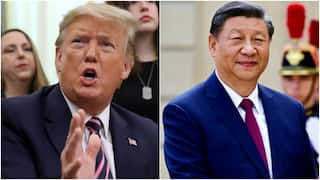Hyundai IPO: Why It Failed To Woo Retail Investors? EXPLAINED
Retail investors didn't feel confident in the maiden issue due to a seemingly last-minute hike in the price band and several ‘red flags’ highlighted ahead of the IPO

Hyundai Motor India’s public listing was touted to be the largest ever seen in the Indian stock market. However, the initial enthusiasm couldn’t be converted into actual subscription bids for the initial public offering (IPO) as it ended up being one of the lowest-subscribed by retail investors for issues of more than Rs 10,000 crore.
Citing experts, The Financial Express reported that individual investors opted to stay away from the mega IPO. This dent in the sentiment could be attributed to a seemingly last-minute hike in the price band and several ‘red flags’ highlighted ahead of the issue launch.
The IPO was closed for subscription on Thursday and the company received bids for 2.37 times the number of shares on offer. However, the bids was majorly driven by qualified institutional buyers (QIBs). Retail investors and non-institutional investors placed bids for only 50 per cent and 60 per cent of the share quota reserved for them respectively.
Notably, prior to the IPO, reports emerged stating that the automaker will possibly seek Rs 25,000 crore. Eventually, the final figures showed that the firm intended to raise Rs 27,870 crore at the upper end of the price band of Rs 1,865-1,960 per share.
Earlier in the beginning of the month, Hyundai India’s shares traded at a premium of Rs 380 per piece in the grey market, however, on the last day of the public issue, the company’s shares plunged to zero.
Also Read : Renting Vs Buying Debate: Zerodha's Nikhil Kamath Shifts Stance; Buys His First House
The report quoted Ambareesh Baliga, market analyst, and said, “Looking at the history and the track record of such large issues, they should have left something on the table for investors… Even if they had left that 12% on the table, they still might have got good support.”
Experts further pointed out that the Kia business not being included in the Indian part of the company was a key issue for the investors. The overall market conditions also remained muted after key indices slipped almost 4 per cent this month.
Trending News
Top Headlines






































